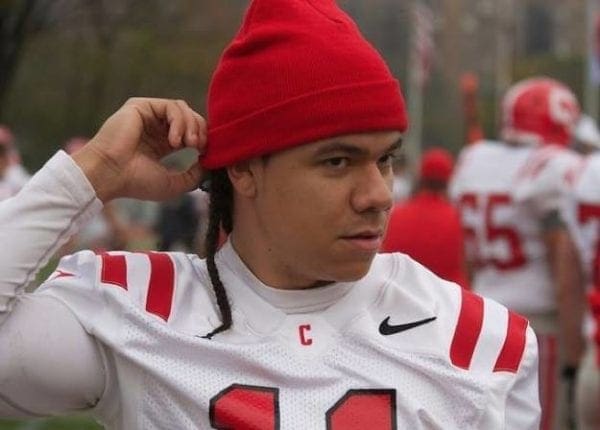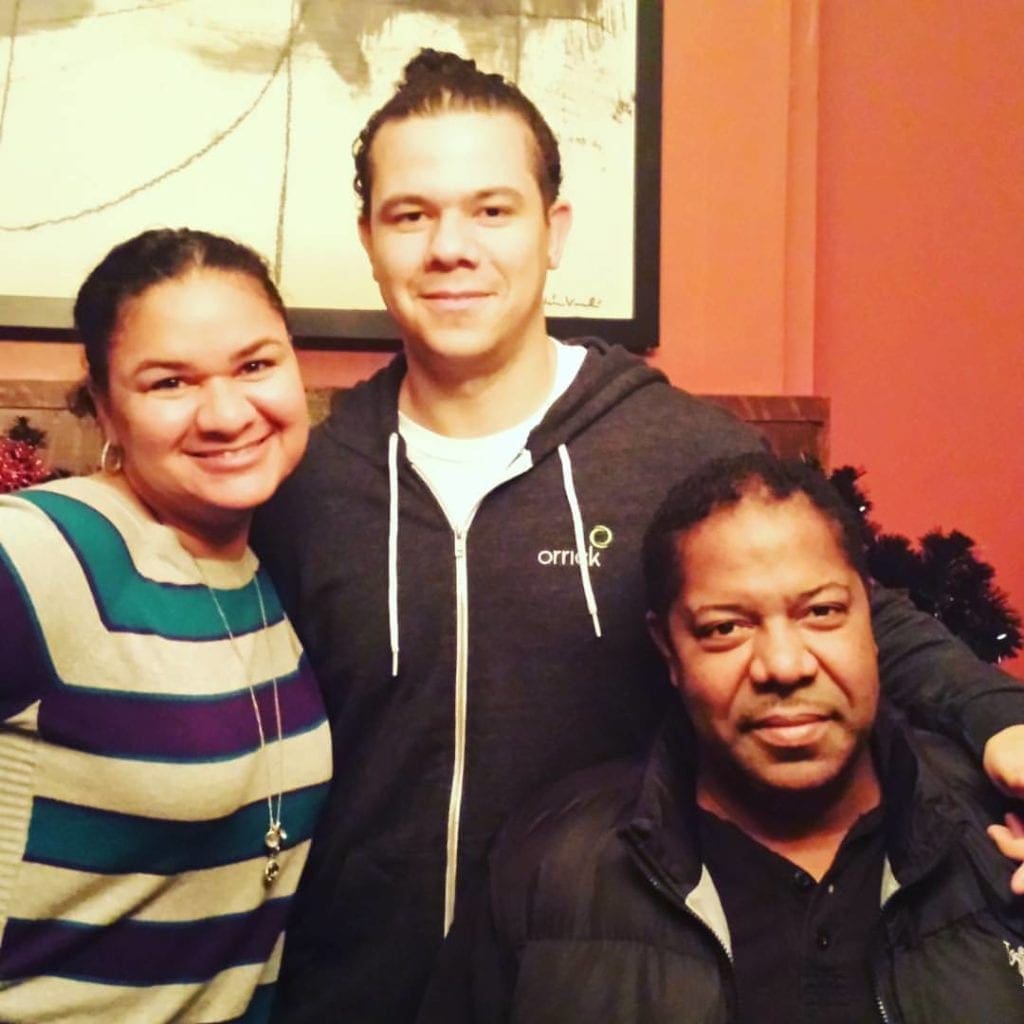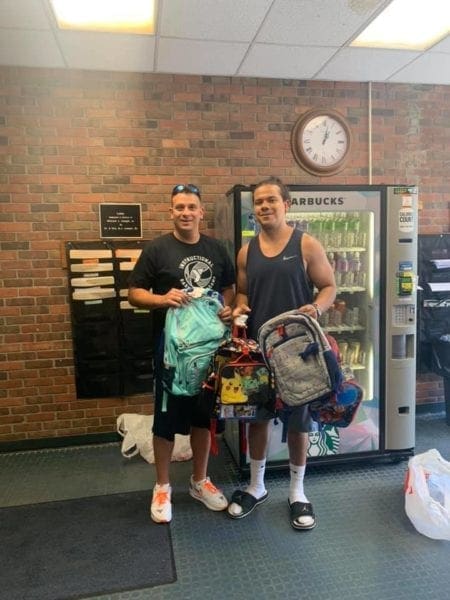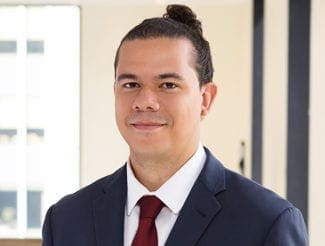DeMarr Moulton isn’t one to humblebrag, though few could blame him for a little chest puffing given what he’s accomplished. After all, Moulton needs to walk fewer than 10 blocks from his residence in New York’s Upper East Side, and he’d be at the Met and Central Park.
Not bad for a young man from Wheeling who grew up in less than ideal conditions. Moulton’s home may have lacked in material niceties. But what it did have is a loving family, headed by two hard-working parents, who were steadfast in setting a great example for their children and were unwavering in offering their support of their kids’ dreams.
That’s why every year, Moulton reposts a memory on Facebook he first made in March of 2011. Moulton was a sophomore then at Cornell University, halfway to his sociology degree from an Ivy League school and playing college football on a level most valley natives only dream to achieve. The post features an image of his family’s old house in Wheeling and mentions some of the more unsavory features of his neighborhood. Yet here he stood, despite it all. He reshares it every year, not to draw attention to himself, but to remember where he came from and offer his heartfelt thanks to those that supported him along his journey.
It’s a journey that finds Moulton a resident of one of New York City’s most prestigious neighborhoods, a licensed attorney and, since September, an associate at one of the top law firm’s in the county in Orrick, Herrington & Sutcliffe. He’s a Linsly School and Cornell University graduate and finished Law School at the University of North Carolina in Chapel Hill. Not bad indeed DeMarr. Not bad indeed.

People always say a Linsly education is the first step on the path to the Ivy League. How did the school prepare you for such a rigorous academic workload in college, and did playing football, both in high school and college, help you learn to juggle a lot of activities which demanded your time?
This is a great question because Linsly and sports are the two top things that I think have shaped my life. First, I wouldn’t be where I am in life without Linsly. Period. So yes, everyone knows Linsly prepares you for a college education. It offers all the AP classes, electives, and teachers that could easily be teaching at universities around the nation but chose to stay at Linsly. But how Linsly really prepared me for college and for life is just that success is expected and normalized. Every day I was surrounded by people who had big dreams, whether that was to be a doctor, lawyer, go to an Ivy League school, or play college sports. Nobody wanted to be average. And the resources there—the faculty, coaches, fellow students, alumni—all were willing to help us all get where we wanted and take time out of their days to help others get on the path to their dreams. To me, I had no excuse not to at least try to become something more than what’s usually expected from someone from where I come from. I didn’t know it at the time, but I had no choice but to be successful because that’s just how Linsly cultivates its students. I wouldn’t have made it to Cornell or UNC or became a lawyer without Linsly’s help as a student, and even to this day my Linsly family helps however they can. As I was answering this question, my old coach and dean, Mr. Plumby, actually called to check on me.
Second, high school sports and college football have helped me off the field more than anything. Sports, and specifically college sports, are almost a 24/7 job. Obviously, you have practice and games, but in college you also have film, workouts, and meetings. In addition to all that, you still have class. And if you tore your ACL like me, then you had to do all that plus whatever rehab and treatment was required. So, you have to learn to manage your time, or you can get behind quickly. So, time management is a key skill you gain from college sports that stays with you in your professional life, for sure. Additionally, from college sports, you learn how to be a part of a team, how to work hard, how to work efficiently, and how to take feedback. These skills are something every employer is looking for, and when they see you played a college sport, all these boxes are immediately checked off. So, regardless if you were a SEC football star, or if you were a D2 backup point guard, they know you have these skills and can add value to their company. And as a lawyer at a big law firm, these skills from playing football at Cornell have been a tremendous help.
You had a little time in between getting your sociology degree and attending UNC. Were you trying to find the right career, and what ultimately led you to take the LSAT exam and go for law school?
I spent about a year and half between undergrad and law school. I worked at Willams Lea during that time. I knew whatever my future career was, it was going to be something where I could help others. I knew I probably wanted to go to law school, but I definitely didn’t want to go straight from undergrad. I wanted to be home with my mom and dad. I also wanted to save up some money and get some work experience. And as a legal document specialist at Williams Lea on the Orrick account, I got some experience with how a big law firm works and some of what being a lawyer entails. Everyone always jokes and asks, “That didn’t scare you away from the law?” But it was a really good experience for me.
You were a summer associate at Orrick during 2017. What was your first introduction to big city law like and was that when you knew that a) you wanted to work in a big market, most likely for Orrick, and b) is that what gravitated you toward complex litigation and white collar practice?

Coming to New York City for the first time was crazy. It obviously was different than anywhere I’ve ever lived. It was overwhelming immediately because I couldn’t just drive to Target and get everything I needed for my move. I also didn’t know many people, so it was a new place and new job all at the same time. But after a short while I met some new friends and connected with some others from Cornell, and it was fine. Being a summer associate was dope because we got paid well, and we had all kinds of events like Mets game, shows, and Michelin star restaurants for lunch. But even after now living here for about six months, I still wouldn’t say I’m used to having to catch a train or only buy enough groceries that I can carry for a few blocks. New York City is fun, and I’m glad I got out of my comfort zone and made this move. I really never thought I’d be a New Yorker, but after interviewing with firms in NY, and specifically Orrick, I knew New York was where I was going to end up. It’s just the epicenter of the legal world and where all the biggest clients and cases are, and I knew that’s where I needed to be. And yes, after my summer at Orrick I knew I wanted to do litigation. I did both deal work and litigation work during the summer to try out both sides, and I decided I liked litigation more. Reading and writing are more of what I like to do and where I think I am at my best. Also, being an athlete at heart, I think the more competitive nature in litigation is more comfortable for me. It’s like my side versus the other side, it’s almost like a team sport.

Are you taking the partner career track or instead trying to strike the right amount of work-life balance? Ballpark, how many hours would you say you log a week? Were there other areas of law you considered, or is this discipline the one you feel is right for you?
I’ve only been in practice for less than a year, so I don’t know whether becoming partner is what my future holds or not as of right now. I’m just going with the flow. I haven’t been out of school for even two years, and I’ve already had two legal experiences (clerking and Orrick), so I’m still learning what I like and don’t like. I don’t think any decisions like that will be based on how many hours I work or work-life balance, but more on if am working on matters that feed my intellectual curiosity. I think if I can go to work without dreading work, then even if I work 80 hours every week it, wouldn’t be as bad as working on things, I’m not interested in for 40 hours a week. So yes, I’m still considering all options, and I’m at a great, diverse firm with many types of clients and matters. I have gotten so much exposure to lots of different types of law, but I am not ready this early in my career to pigeonhole myself into one area. Before law school, I thought I only wanted to be a criminal defense attorney, but I became open to other disciplines once I experienced more. And at Orrick, with our amazing pro bono program, I still get to do criminal work on top of working for some of the biggest and widely known companies in the world.
Lastly, given the coronavirus pandemic and its hold on New York City, how has that changed your daily routine, not only in your professional life, but also at home? Is it hard trying to go about your day as best you can while seeing the number of cases and death continue to escalate?
Well New York is being hit hard by the coronavirus, and most of us are not allowed to go to work. I haven’t left my apartment in over a week as I am trying to strict quarantine to hopefully be able to go back home to Wheeling or Pittsburgh, where it’s probably safer. I’m an introvert, so I am handling it better than some others. I can work out when I want and sit on my rooftop to get fresh air if I want. Orrick is one of the top tech firms and some people worked from home a lot before the virus hit. I’m still working a lot, just it’s from my couch rather than in my office. We still have lots of calls and video chat meetings regarding our matters. So other than being in court, the work is still plugging along. It’s hard going about your day because even just running to the grocery store seems like a risk. New York isn’t known as the friendliest place, but nowadays you can tell people don’t even want to be on the same sidewalk as someone else. Everyone is scared and seeing the number of cases and deaths every day adds to the collective stress and anxiety here. Hopefully things get back to normal sooner rather than later.


